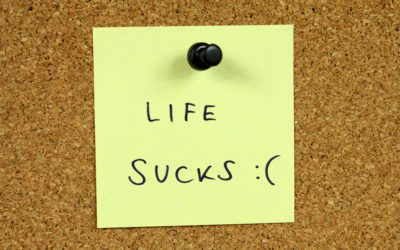I was talking to the supercoach Steve Chandler once when he said to me, “Have an average day!” A bit taken aback, I asked him what he meant. After all, isn’t the idea to have “great” days, or even “exceptional” ones?
He then told me the story of one of his mentors, a man named Lyndon Duke, who had studied something called “the linguistics of suicide.” After receiving a doctorate from two separate universities, Duke had begun analyzing suicide notes to look for linguistic clues that could be used to predict and prevent suicidal behavior in teenagers. In his research, he came across the work of Dr. Abraham Low, a contemporary of Jung and Adler who had developed his own somewhat controversial form of psychotherapy in the 1930s. Low worked with his patients to recognize that whatever unique skills or talents they might have, they were essentially human beings just like everyone else, dealing with the same problems in the best way they knew how. He called this the “average person” approach to life and contrasted it continually with what he called “the curse of exceptionality.”
In a world where everyone is trying to be exceptional, two things happen. The first is that nearly everyone fails, because by definition, if too many people become exceptional, the exceptional becomes commonplace. The second is that the few who do succeed feel even more isolated and estranged from their peers than before. Consequently, you have a few people feeling envied, misunderstood, and alone and tens of thousands of others feeling like failures for not being “enough”- “good enough,” “special enough,” “rich enough,” or even “happy enough.”
This resonated deeply with my own experience. When I was in the midst of the thickest cloud of suicidal thoughts in college, I remember wishing I could run away from my Presidential scholarship and hide, perhaps changing my name to “Bob” and taking a job pumping gas at a service station somewhere in the Midwest. Only in my fantasy sooner or later people would start to notice that there was something special about me. They would begin driving miles out of their way to have their cars filled up by “Bob the service guy” and exchange a few words with him, leaving the station oddly uplifted and with a renewed sense of optimism and purpose. Before long, someone would discover how exceptional I was, and I’d have to run away from their expectations all over again. I was, to my way of thinking, doomed to succeed.
Delusions of grandeur? Quite possibly.
Depressed, hopeless, and miserable? Absolutely!
One of Lyndon Duke’s major breakthroughs came when he was dealing with his own discontent and heard the sound of a neighbor singing while mowing his lawn. He realized then that despite all the “exceptional” work he was doing, what was missing from his life were the simple pleasures of an average life.
The very next weekend, he went to visit his son, who was struggling to excel in his first university term. He sat him down and told him about his revised expectations for him: “I expect you to be a straight-C student, young man. I want you to complete your unremarkable academic career, meet an ordinary young woman, and, if you choose to, get married and live a completely average life!”
His son, of course, thought Dad had finally flipped, but did take the pressure off himself to be quite so exceptional. A month later he phoned his father to apologize. He’d gotten A’s on all his exams, but it was okay because he’d only done an average amount of studying.
And this is the paradoxical promise of the “average day” philosophy-the cumulative effect of a series of average days spent doing an average amount of what one loves and wants to do is actually quite extraordinary!
When I first introduce this “average day” philosophy to my clients, they sometimes freak out at the idea of “settling” for average after a lifetime of successful (or unsuccessful) over achievement. To calm their nerves, I guide them through a version of the following exercise:
One Day at a Time
1. Choose an area of your life you’ve been trying to excel in-for example:
- Writing
- Sales
- Being a mom
2. What would constitute an average day in that area? Not typical, but average (as in neither exceptionally good nor exceptionally bad)?
For example:
- Writing: Spending 45 minutes a day actually writing
- Sales: Speaking to five new prospects
- Being a mom: Spending at least half an hour before and half an hour after school focused 100 percent on being with the kids
3. Project forward into the future-if you did nothing but repeat your “average day” five days a week, how much of a difference would you have made in three months? A year? Five years? A lifetime?
For example:
– “Writing for 100 or so hours in a six-month period would probably be enough to complete an entire book; 200 hours a year would be enough to add some poetry and a screenplay. Writing more than 1,000 hours during a five-year period would make me prolific.”
– “Speaking to more than 100 people a month about the difference I could make for them would definitely lead to some sales; more than 1,200 difference-making conversations a year would lead to numerous sales (and an incredible amount of skill development); more than 6,000 difference-making conversations in a five-year period would make me rich!”
– “Spending at least an hour and a half a day with my kids seven days a week would be more than 125 hours in three months, which would be more than enough time to really get to know them and tune in to their wants and needs; 500-plus focused hours of time spent with my children over the course of a year would create an incredible level of friendly intimacy and positive familiarity; if I made even a tiny difference in each one of nearly 3,000 hours over a five-year period, the impact on their lives and the sense of meaning in mine would be anything but average!”
4. Do three small things today that make a positive difference on a project you’re working on or a direction you’re moving toward. Repeat daily for as long as you like!









